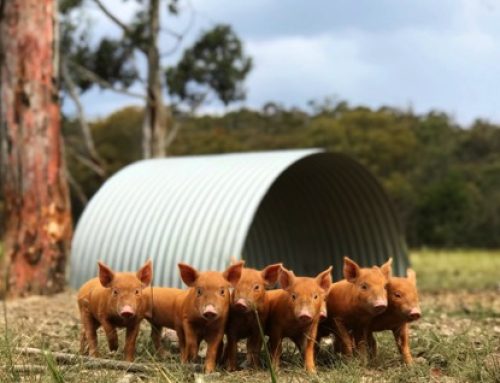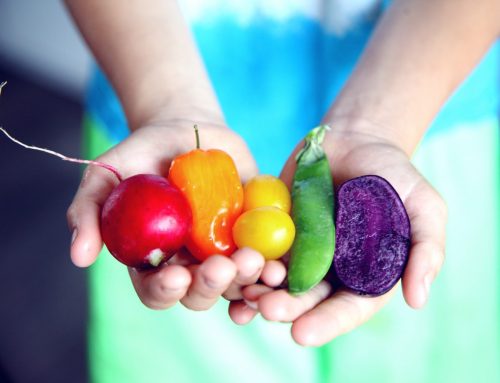The Australian Food Sovereignty Alliance (AFSA) is celebrating a win for small-scale pastured pig and poultry farmers – and everyone’s access to food grown in ethical and ecologically sound ways – with the Victorian Government’s announcement of the long-awaited reforms to the planning scheme.
The reforms acknowledge the very low risk these systems pose to environment and amenity, and introduce a streamlined permit application process for low density mobile outdoor pig and chicken farms, with no requirement for referrals to other agencies nor a notice and review period.
‘While we still maintain that small-scale pastured pig and poultry farms should not have been required to obtain a permit to farm in the Farming Zone, just as their grazing counterparts are not required to, we have accepted this compromise as a way forward to give local councils and communities confidence that our intentions to raise animals responsibly and respectfully are matched by our farming practices,’ said AFSA President Tammi Jonas.
Up until 2015 small-scale pastured pig and poultry farms were advised by councils across the state that they did not require permits as they were generally considered to be ‘extensive’ or grazing systems. However, a VCAT ruling in 2015 deemed free-range pig farm Happy Valley as ‘intensive’ due to importing the majority of the pigs’ feed.
The decision triggered a process that has taken three years to address what farmers, councils, and the state government all agreed was an unintended consequence of an imprecise definition.
AFSA mobilized its members and partnered with other organisations across the state such as Slow Food Melbourne, Open Food Network, and the Victorian Farmers Markets Association, which led to an unprecedented 270 submissions made to Agriculture Victoria late last year calling for scale-appropriate, risk-based planning provisions.
‘We are delighted at this outcome after years of working with the Victorian Government, and optimistic that small-scale regenerative farmers have a seat at the table now that we have collectivized our voices in an organization that the Government recognizes as the voice of small-scale farmers,’ said AFSA President Tammi Jonas.
‘Whilst the new scheme is not perfect, it blends solid scientific principles with a pragmatic approach for planners to ensure that our sector can continue to expand rapidly while protecting environment and amenity. The Government and its departments are to be congratulated for recognising the emergence of our sector and asking for our help to formulate this new policy,’ said Bruce Burton of Milking Yard Farm.
“Regrarians Ltd applauds the Victoria State Government’s process since it released its draft reforms in September 2017. Working with partner organisations such as AFSA, VFMA along with many of our clients affected by these reforms, we have been encouraged by the professional collaboration of these stakeholders to work with the government such that the regenerative agriculture industry’s interest and best practice have been included. We look forward to continuing the collaboration so that further development of the reforms serves the interests of a regenerative future for Victoria’s agriculture,” said Darren Doherty of Regrarians Ltd.
AFSA hopes this is the first of many amendments to legislation that is hampering the growth of regenerative agriculture across Australia, from scale-inappropriate planning schemes to food safety regulation.
‘We want to see regenerative farming become the new normal, with care for soil, water, animals, farm workers, and eaters at the core of our farming practices, but for this to happen, we need governments to shift their policy focus from supporting industrial agriculture to enabling regenerative farming.’
‘We’re encouraged by Minister for Agriculture Jaala Pulford’s announcement last month of the Artisanal Agriculture program, with $2 million earmarked to support our members in their efforts to grow food in ethical and ecologically-sound ways,’ said Jonas.
One significant concern that remains is the failure to include other species of poultry (such as ducks, geese, turkeys, quail and squab) in the streamlined process. However, ‘AFSA has been assured by the Minister that the work to include other species of poultry in the streamlined process will be undertaken as a matter of priority,’ said Jonas.
Contact: Tammi Jonas, President
m: 0422 429 362




